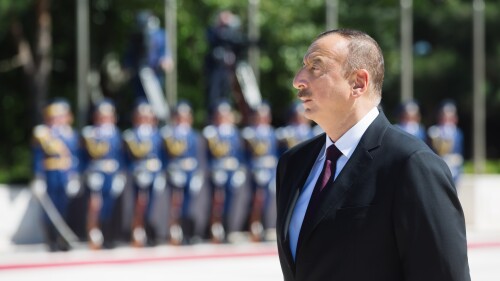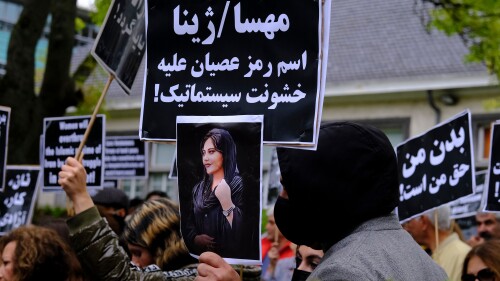Artificial intelligence (AI) represents a technological leap. Whereas many Middle Eastern states traditionally are slow to adopt new technology, fearing the disruption they might cause or vulnerabilities their use could exploit, Iran dating back to the 19th century seeks to be on the vanguard of technology. Persia (as Iran was called before 1935), for example, was among the first countries in the world to adopt the telegraph, and later inaugurated radio and television before its neighbors did. The Islamic Republic has been no different, becoming the second country in the Middle East after Israel to embrace the internet, albeit seeking to adopt and control its use.
The Iranian government is now scrambling to create a regulatory and policy body to manage AI penetration in Iran. While the process began under late President Ebrahim Raisi, his interim successor Mohammad Mokhber inaugurated a new National Artificial Intelligence Organization just prior to the election of Masoud Pezeshkian.
That said, it remains unclear whether the more introspective and traditional elements within the Iranian hierarchy fully appreciate the opportunities and dangers AI presents. Eighteen months ago in Iraq, a Shi’ite theologian told me that he did not believe AI would be a problem, at least religiously, because ordinary Shi’ites had too much respect for their living, trained theologians. While he felt differently about its potential impact on Sunnis, his belief might also represent insulation from society; it is impossible to maintain a firewall between most mainstream religions and technology.
Still, Iranian clerics believe they can both control AI and use it to their advantage. In June 2024, for example, the secretary of the Seminaries’ Intelligent Technologies Department urged presidential candidates to utilize the technology to increase voter turnout.
Iranian security forces likewise increasingly utilize AI to facilitate crackdowns and curtail protests, more quickly and efficiently processing CCTV feeds and other disparate information.
By placing the center under the presidency, though, the regime reflects its prioritization, or perhaps lack thereof. It is unclear the degree to which Supreme Leader Ali Khamenei remains engaged on the topic. In contrast, Khamenei put the Supreme Cyberspace Council under his more powerful purview. Perhaps Khamenei does not fully grasp AI; it can be hard to teach an old ayatollah new tricks. Still, with succession looming, it is quite conceivable the AI center will get a promotion under a new supreme leader.
It is also likely that the Islamic Revolutionary Guard Corps will try to corner the market in AI and its regulation in any practical capacity. Here, the Revolutionary Guards would be right to panic. Both the monarchy and the post-1979 Islamic Republic strengthened in the short term after previous technological leaps, only to lose control of the technology as opposition learned to embrace it themselves. The pattern likely will remain similar with AI, raising the possibility that Iranian strength and stability soon could be tested at home, just as a perfect storm brews with succession. AI might be peripheral to the Iranian regime’s concerns today, but it is conceivable that the Islamic Republic might nevertheless quickly become the first victim of the AI revolution.







